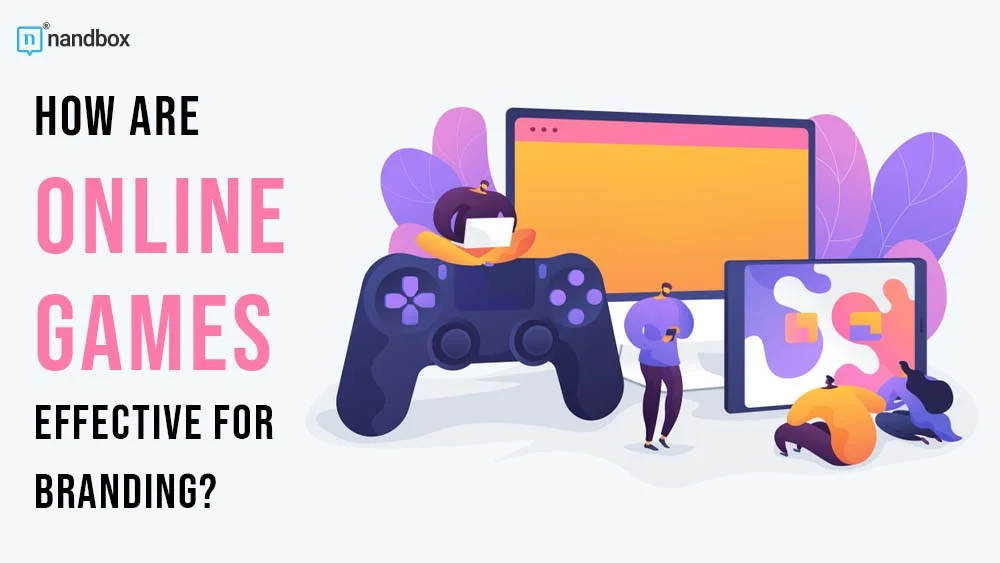Online games have become part of our daily lives as they help us manage our stress levels. But do you know that it also helps provide effective branding for businesses? Well, this guide is all about online games marketing strategy. In this article, we will explain to you why and how online games are effective for branding. So, let’s get started with it.
Online Games Marketing Strategy: The Evolution of Branding and Online Games
-
The Shift to Digital Branding
With the rise of the internet, our life have totally changed. From entertainment to education, everything. However, not only that, the branding landscape is also making a shift from traditional forms of advertisement to digital strategies. Yes, there are thousands of brands that have adopted the technology and created immersive and interactive experiences that attract their targeted audience. To play online games, they provide players a huge amount of money.
-
Growth of the Online Gaming Industry
Online branding again started booming when online games were introduced about two decades ago. According to the 2020 report by Newzoo, the overall digital branding market generated over $159 billion in revenue by promoting their brand in online games. However, by this, we can imagine how much potential there is in online branding via the gaming industry.
The Effectiveness of Online Games for Branding
-
Enhanced Engagement
Since that day, big brands like Xiaomi, Oppo, Vivo, etc., started promoting their products via online games like PUBG, Fortnite, etc. and have started engaging users deeply. As per what I reviewed, the primary reason why online games are effective for branding is that the players invest their time and effort into the games. This helps you attach your brand to users and win their loyalty.
Case Study: Coca-Cola’s “Coca-Cola Zero Sugar Byte”
We all know that Coca-Cola also launched its own game to promote its Zero Sugar Byte (a sugar-free beverage). In this game, they integrate everything related to their products to enhance their brand identity. However, this is not limited to promoting; it also increases sales and creates a positive sentiment towards the product.
-
Immersive Brand Experiences
Using Online Games as a branding tool helps big brands create immersive brand experiences that always dominate traditional advertisements. This also helps brands to make virtual branding environments, product placements, etc. Using this technology, companies can easily integrate their messaging into the games.
Example: Red Bull’s Integration in “Fortnite”
If you take Red Bull as an example, they recently partnered with Fortnite. In this partnership, in exchange for a large amount of money, the Fortnite developer integrated branded in-game content to promote Red Bull. Regarding the content, they created Red Bull-branded challenges, events, virtual items, etc., for players. With this partnership, Red Bull reinforced its image as a high-energy drink.
-
Community Building
The online gaming industry has already built a strong and loyal community of gamers who share their experiences with the game. So, when brands dive into these communities, they get a sense of what the users like and make their products accordingly.
Case Study: Nike’s Collaboration with “NBA 2K”
In the NBA 2K, Nike dives into this industry and creates Nike-sponsored events and tournaments. These events helped Nike a lot to promote and make their brand more visible to the basketball community. When Nike jumps into the NBA community, they understand what products players actually like and make their products accordingly.
Challenges and Considerations
-
Balancing Branding and Player Experience
Game developers face many challenges, one of which is balancing branding and gaming experiences. However, if they don’t make the partnership look like part of the game, players get bored and feel annoyed. If, as a developer, you are overly intrusive or do irrelevant branding, then it is 100 percent sure that players will start detaching from the game, which leads to negative perceptions.
-
Navigating Ethical Concerns
The second issue that game developers face is that they need to choose a branding partner that suits their games. More importantly, the branding partner must be ethical and not manipulate the users’ data and privacy. So, that’s all we have for you on how online games are effective for branding. We hope that this guide has helped you. For more information, comment below.




